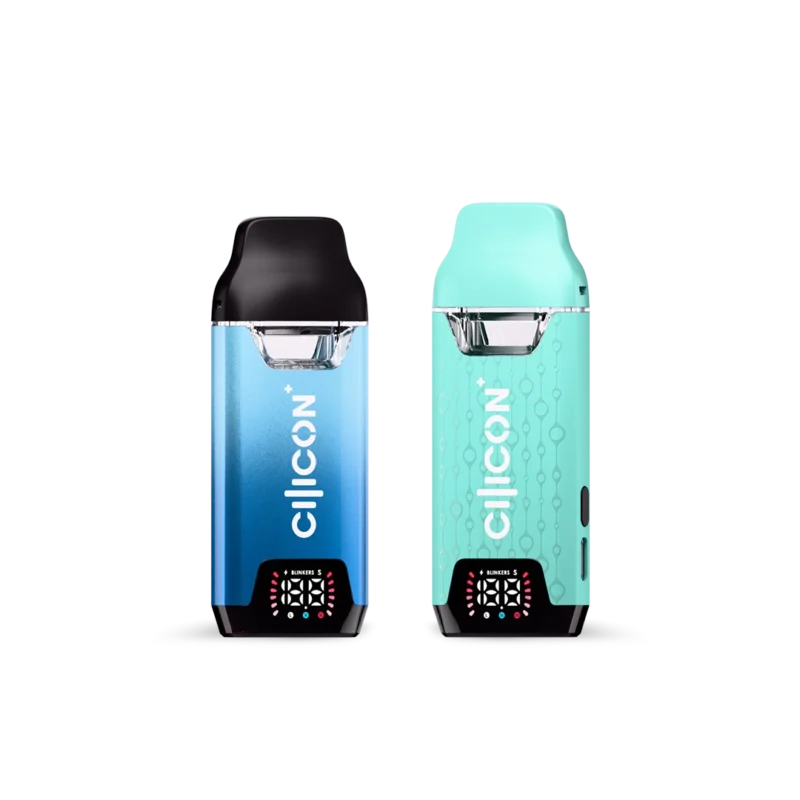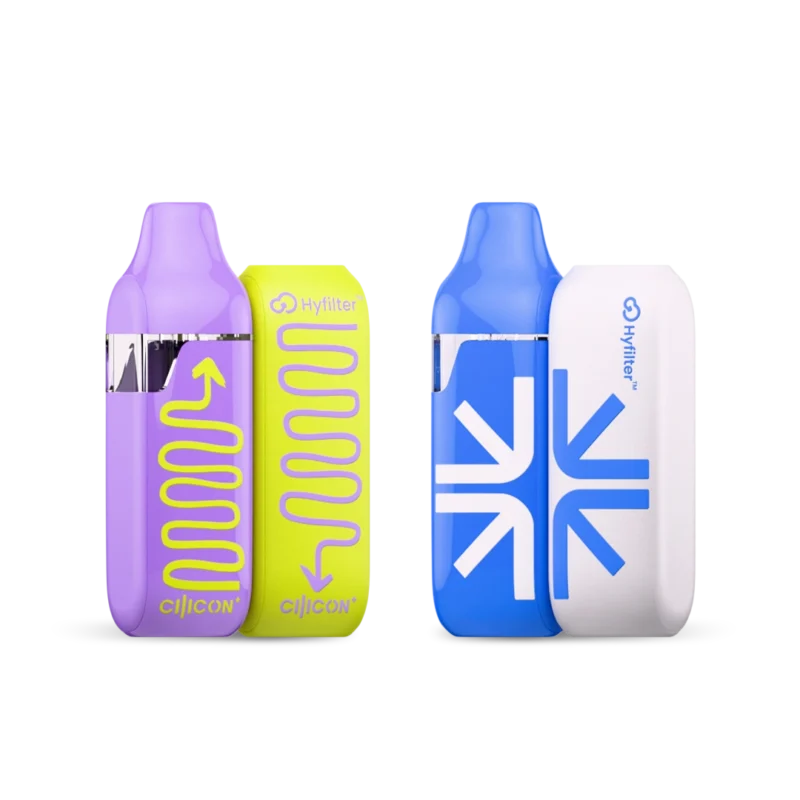-
New

GEMINO
1.0mL/2.0mL
Learn More
-
New

TYNIE
1.0mL/2.0mL
Learn More
-
New

HYCLICK
1.0mL/2.0mL
Learn More
-
New

WATCHA
1.0mL/2.0mL
Learn More
-
Best Seller
SOLO 1
0.5mL/1.0mL
Learn More
-
DELI Nova3
1.0mL/2.0mL
Learn More
-
EDGE Box6
2.0mL
Learn More
-
HYFREE
2.0mL
Learn More
-
ELEV Box8 Pro
2.0mL
Learn More
-
DELI Duo2
2.0mL
Learn More
-
DELI Nova2 & Pro
1.0mL/2.0mL
Learn More
-
POPSI
3.0mL
Learn More
-
EZI
1.0mL/2.0mL
Learn More
-
DELI Nova1
1.0mL/2.0mL
Learn More
-
EDGY
1.0mL
Learn More
-
EDGE Box5
2.0mL/3.0mL
Learn More
-
EDGE Box4
1.0mL/2.0mL
Learn More
-
DELI Box3 Pro
1.0mL/2.0mL
Learn More
-
POCKIE
1.0mL
Learn More
-
EDGE 3
2.0mL
Learn More
-
DELI 1
0.5mL/1.0mL
Learn More
-
EDGE Air1
1.0mL/2.0mL
Learn More
-
ELEVEN
2.0mL/3.0mL
Learn More
-
DELI Box1 Pro
1.0mL/2.0mL
Learn More
-
DELI DUO1
1.0mL/2.0mL
Learn More
-
DELI Box2
1.0mL/2.0mL
Learn More
-
EDGE Box3
3.0mL/4.0mL
Learn More
-
FLARE Box2
5.0mL
Learn More
-
DELI Box1
1.0mL/2.0mL
Learn More
-
TOCO
5.0mL/6.0mL
Learn More
-
ELEV Box8
1.0mL/2.0mL
Learn More
-
ELEV Box9
3.0mL/4.0mL
Learn More
-
FLARE Bar1
0.5mL/1.0mL
Learn More
-
ELEV Box7
3.0mL
Learn More
-
ELEV Box6
1.0mL/2.0mL
Learn More
-
ELEV Box5
4.0mL/5.0mL
Learn More
-
EDGE Box2
1.0mL/2.0mL
Learn More
-
EDGE 2
1.0mL/2.0mL
Learn More
-
SOLO 2
2.0mL/3.0mL
Learn More
-
ELEV Bar1
1.0mL/2.0mL
Learn More
-
ELEV Air1
1.0mL
Learn More
-
In recent years, the cannabis industry has witnessed a surge in interest surrounding a lesser-known cannabinoid called Tetrahydrocannabinolic Acid (THCA). While most people are familiar with the psychoactive compound THC (Tetrahydrocannabinol), cannabinoid THCA is its non-psychoactive precursor found in raw and live cannabis plants.
THCA shares a similar molecular structure with THC but lacks the intoxicating effects commonly associated with marijuana use. Instead, THCA has garnered attention for its potential therapeutic benefits, including anti-inflammatory, neuroprotective, and anti-proliferative properties.
As the demand for alternative cannabis consumption methods continues to grow, a new product has emerged: the THCA vape. Unlike traditional cannabis vapes that deliver THC, THCA vapes allow users to experience the potential benefits of this unique cannabinoid without the psychoactive high.
THCA vapes work by heating THCA extract or distillate to a temperature that vaporizes the compound without causing decarboxylation, the process that converts THCA into THC. This method preserves the integrity of THCA, allowing users to inhale the compound directly into their lungs for enhanced bioavailability and rapid absorption.
In this article, we will explore the world of THCA vapes, delving into their potential benefits, how they work, and the legal and regulatory landscape surrounding this innovative cannabis product.
What is the THCA?
THCA, or Tetrahydrocannabinolic Acid, is a naturally occurring compound found in raw and live cannabis plants. It is a precursor to THC, the primary psychoactive component in marijuana. While THCA and THC share a similar molecular structure, there are distinct differences between the two compounds.
Chemical Structure and Properties of THCA
THCA is a cannabinoid acid with the chemical formula C22H30O4. It is non-psychoactive and does not produce the “high” commonly associated with THC consumption. This is because THCA has an additional carboxyl group (COOH) attached to its molecular structure, which prevents it from binding to the same receptors in the brain that THC does.
Differences between THCA and THC
The key distinction between THCA and THC lies in their chemical structure and the way they interact with the body’s endocannabinoid system. THCA is non-psychoactive, meaning it does not produce the intoxicating effects that THC is known for. Additionally, THCA is believed to have its own unique therapeutic properties that differ from those of THC.
Benefits of Consuming THCA over THC
While THC has well-documented medical benefits, some individuals may prefer to avoid its psychoactive effects or potential side effects. THCA offers an alternative for those seeking the potential therapeutic benefits of cannabis without the “high.” Research suggests that THCA may have anti-inflammatory, neuroprotective, and anti-proliferative properties, making it an attractive option for various medical conditions.
The Rise of THCA Vapes
In recent years, THCA vapes have emerged as a popular alternative to traditional cannabis vaping products. This surge in popularity can be attributed to several factors, including a growing demand for non-psychoactive cannabis products and the potential therapeutic benefits associated with THCA.
Reasons behind the Growing Popularity of THCA Vapes
Increased awareness of THCA
As research into the potential benefits of THCA continues, more consumers are becoming aware of this unique cannabinoid and its potential applications.
Desire for non-psychoactive options
Many individuals seek the potential therapeutic effects of cannabis without the psychoactive “high” associated with THC. THCA vapes provide a solution for those looking to avoid the intoxicating effects of traditional cannabis products.
Legal landscape
In some regions where THC remains illegal or heavily regulated, THCA products may offer a legal alternative for those seeking the benefits of cannabis-derived compounds.
Advantages of Vaping THCA over Other Consumption Methods
Rapid absorption and bioavailability: Vaping THCA allows for rapid absorption and increased bioavailability compared to other consumption methods, such as ingestion.
Precise dosing: THCA vape products often come with precise dosing information, allowing users to better control their intake and experience.
Discreet and convenient: THCA vapes are typically compact, portable, and produce minimal odor, making them a discreet and convenient option for those seeking privacy or discretion.
Health Benefits of THCA Vapes
While research on THCA is still in its early stages, preliminary studies have suggested that this unique cannabinoid may offer a range of potential therapeutic benefits. By consuming THCA through vaping, users may be able to take advantage of these benefits while avoiding the psychoactive effects associated with THC.
Potential Therapeutic Benefits
Anti-inflammatory properties: THCA has been shown to possess anti-inflammatory properties, making it a potential therapeutic option for conditions such as arthritis, Crohn’s disease, and multiple sclerosis.
Neuroprotective effects: Preclinical studies have suggested that THCA may have neuroprotective effects, potentially making it useful in the treatment of neurodegenerative diseases such as Alzheimer’s and Parkinson’s.
Anti-proliferative properties: THCA has demonstrated anti-proliferative properties, meaning it may have the ability to inhibit the growth and spread of certain types of cancer cells.
Reduced Psychoactive Effects Compared to THC
One of the key advantages of THCA vapes is that they offer the potential benefits of cannabis without the psychoactive effects associated with THC. This makes THCA vapes a valuable option for those who wish to avoid the “high” or who have specific professional or personal obligations that preclude the use of psychoactive substances.
Improved Bioavailability through Vaping THCA Vape Pens
Vaping THCA allows for improved bioavailability compared to other consumption methods, such as ingestion. When THCA is vaporized and inhaled, it enters the bloodstream more efficiently, potentially increasing the potency and effectiveness of the compound.
It’s important to note that while the potential benefits of THCA are promising, more research is needed to fully understand its therapeutic applications and long-term effects. As with any cannabis-derived product, it is recommended to consult with a qualified healthcare professional before incorporating THCA vapes into a treatment plan.
As the demand for alternative cannabis products continues to grow, THCA vapes have positioned themselves as a compelling option for those seeking the potential benefits of this unique cannabinoid without the psychoactive effects associated with traditional cannabis products.
How THCA Vapes Work?
THCA vapes operate on a principle similar to other vaporizers, but with a specific focus on preserving the unique properties of the THCA compound. Understanding the vaporization process and the various types of THCA vape products available can help users make informed decisions and ensure safe and effective use.
Explanation of the Vaporization Process
THCA vapes work by heating THCA-rich extracts or distillates to a temperature that vaporizes the compound without causing decarboxylation. Decarboxylation is the process that converts THCA into THC, which occurs at higher temperatures.
Typically, THCA vapes are designed to operate at temperatures between 220°F (104°C) and 320°F (160°C). This temperature range is sufficient to vaporize THCA without converting it to THC, allowing users to inhale the non-psychoactive compound directly.
Types of THCA Vape Products
THCA vape products come in various forms, each with its own advantages and considerations:
- THCA Vape Cartridge: These pre-filled THCA vape cartridges contain THCA-rich distillate or extract and are designed to be used with a compatible vape battery or device. THCA carts offer a convenient way to vape THCA without the need for refilling or maintenance.
- THCA Vape Pen: These are all-in-one devices that combine a battery and a pre-filled THCA cartridge or tank, providing a convenient and portable vaping solution. They are often sleek and discreet, making them a popular choice for on-the-go use.
- THCA Vape Mod: For more advanced users, THCA vape mods allow for greater customization and control over temperature settings, wattage, and other variables. These devices typically use refillable tanks or atomizers and offer a more personalized vaping experience.
- THCA Disposable Vape Pens: These are pre-charged, pre-filled, and ready-to-use vape devices that contain THCA distillate or extract. Disposable THCA vape pens are designed for single-use and are incredibly convenient, as they require no setup, charging, or maintenance. Simply inhale from the mouthpiece until the device is empty, then responsibly dispose of it.
- THCA Vape Concentrate: Some products contain THCA-rich concentrates or extracts that can be used with compatible vaporizers or dab rigs. These concentrates offer a potent and flavorful vaping experience but require additional equipment and knowledge for proper use.
Among these options, THCA disposable vapes stand out for their simplicity and ease of use. They are an excellent choice for those new to THCA vaping or for individuals seeking a hassle-free and discreet way to consume THCA. Disposable THCA vapes eliminate the need for refilling, charging, or cleaning, making them a convenient and fuss-free option for on-the-go or occasional use.
Tips for Using THCA Vapes Safely and Effectively
Start low and go slow: Begin with low temperatures and dosages, and gradually increase as needed to find the optimal experience.
Purchase from reputable sources: Ensure that THCA vape products are obtained from licensed and reputable manufacturers or retailers to guarantee quality and safety.
Read labels and instructions: Carefully review product labels and follow the manufacturer’s instructions for proper use, dosage, and storage.
Respect vape etiquette: Be mindful of others and respect vape-friendly environments to avoid potential conflicts or issues.
By understanding the vaporization process and the different types of THCA vape products available, users can make informed choices and enjoy the potential benefits of this innovative cannabis product while prioritizing safety and responsible use.
Legal Status and Regulations
As with any cannabis-related product, the legal status and regulations surrounding THCA vapes can vary significantly depending on the region or jurisdiction. It’s essential for consumers to understand the current legal landscape and potential future developments to ensure they are operating within the bounds of the law.
Current Legal Status of THCA Vapes in Different Regions
United States
The legal status of THCA vapes in the United States is a complex issue. While hemp-derived THCA products are federally legal under the 2018 Farm Bill, the legality of THCA vapes derived from marijuana plants is determined by individual state laws regarding cannabis.
Canada
THCA vapes are currently legal in Canada, as long as they are derived from hemp plants containing less than 0.3% THC.
Europe
The legal status of THCA vapes varies across European countries. Some nations, such as Switzerland and the Netherlands, have legalized or decriminalized THCA products, while others maintain strict regulations or prohibitions.
Importance of Purchasing from Reputable Sources
Regardless of the legal status in a particular region, it is crucial for consumers to purchase THCA vape products from reputable and licensed sources. This ensures that the products are properly tested, labeled, and meet safety and quality standards.
Potential Future Regulations and Developments
As research into THCA and its potential benefits continues, regulations and laws surrounding THCA vapes will likely evolve. Some potential developments include:
- Increased regulation and oversight: As the popularity of THCA vapes grows, governments may implement stricter regulations to ensure product safety and quality control.
- Expansion of legal access: As more research is conducted and the potential benefits of THCA are better understood, some regions may consider expanding legal access to THCA vape products.
- Changes in classification: Depending on the findings of future research, THCA’s legal classification may be subject to changes, potentially impacting the availability and regulation of THCA vape products.
It is essential for consumers to stay informed about the evolving legal landscape and to consult with legal professionals or regulatory bodies for the most up-to-date information on the legality of THCA vapes in their respective regions.
Where Can I Buy Wholesale Vape Product like CBD, Delta 8, THCA?
As the demand for alternative cannabinoid vape products continues to rise, many consumers and businesses are seeking reliable sources to purchase wholesale CBD, Delta 8, THCA, and other vape products. Buying in bulk can offer significant cost savings and ensure a consistent supply for retailers or personal use.
Here are some options to consider when looking to buy wholesale vape products:
- Online Wholesale Suppliers: Numerous online retailers specialize in offering wholesale pricing for various cannabinoid vape products. These suppliers often have a wide range of options, from pre-filled cartridges to vape concentrates and disposables. Be sure to research reputable suppliers with third-party lab testing and good customer reviews.
- Direct from Manufacturers: Some manufacturers of CBD, Delta 8, THCA, and other vape products offer wholesale pricing and bulk ordering directly from their websites or sales teams. This can be a good option for larger orders and potentially better pricing.
- Vape Trade Shows and Expos: Attending industry trade shows and expos can provide opportunities to network with manufacturers, distributors, and wholesalers. Many offer special show pricing and the ability to sample products before making bulk purchases.
- Local Distributors: Depending on your location, there may be local or regional distributors that carry a variety of wholesale vape products. Working with a local distributor can offer convenience and potentially quicker delivery times.
When purchasing wholesale vape products, it’s essential to prioritize quality, safety, and compliance with relevant regulations. Look for suppliers that provide third-party lab testing results, use high-quality ingredients, and follow good manufacturing practices.
Additionally, be aware of the legal landscape surrounding cannabinoid vape products in your area, as regulations can vary significantly between states and countries.
By exploring these various options, businesses and individuals can access wholesale pricing on a range of innovative vape products, promoting cost savings and enabling them to meet the growing demand for alternative cannabinoid consumption methods.